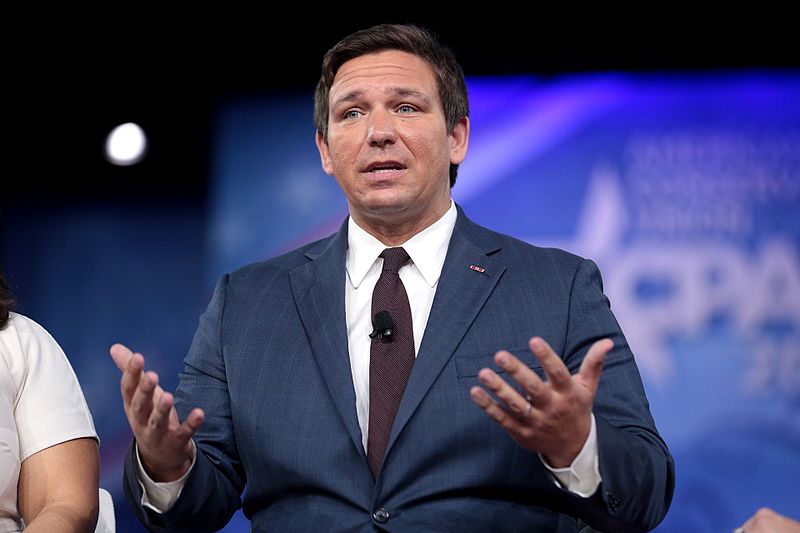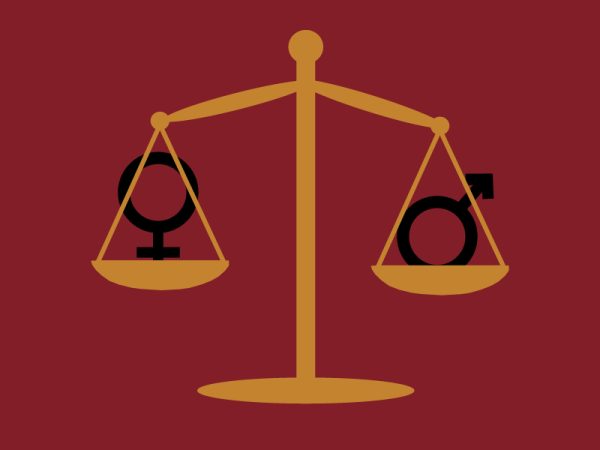Column: U.S. must confront racist speech in politics
November 15, 2018
Right after the primary in Florida, Republican candidate Ron DeSantis appeared on FOX News to warn voters of his opponent, Democratic candidate and Tallahassee mayor Andrew Gillum.
“The last thing we need to do is monkey this up by trying to embrace a socialist agenda with huge tax increases and bankrupting the state,” DeSantis said.
Agriculture Secretary Sonny Perdue used similar phrasing in a statement at a DeSantis rally in Lakeland.
“Public policy matters. Leadership matters,” he said. “And that is why this election is so cotton-pickin’ important to the state of Florida. I hope you all don’t mess it up.”
Republican Sen. Cindy Hyde-Smith, a white woman in the race to keep her seat as Mississippi senator against an African-American running mate, felt comfortable enough to use this “colloquialism” among a crowd of white Southern supporters: “If he invited me to a public hanging, I’d be on the front row.”
According to the NAACP, the racial history that clouds Mississippi’s past includes 581 lynchings over the course of 86 years, from 1882 to 1968, more than any state in that period of time.
Days after 11 Jewish members of the synagogue Etz Chaim in Pittsburgh were killed by a white supremacist, nearly the entire male graduating class of Baraboo High School in Wisconsin cheerfully posed for their class photo using the Sieg Heil Nazi salute. Others put up a white power sign.
Perhaps more memorable than the delayed outrage was the criticism from the Auschwitz Memorial Twitter page.
The response the organization posted read: “This is why every single day we work to educate. We need to explain what is the danger of hateful ideology rising. Auschwitz with its gas chambers was at the very end of the long process of normalizing and accommodating hatred.”
Where is the accountability? Accountability for justified white privilege, normalized hate and rampant bigotry today with a direct link to America’s past known to accommodate all three.
This isn’t about political correctness, it is the use of coded racist language normalized in our politics and in the media. Perhaps racist dog-whistles were always present in American political discourse, but not in the way it is today, at least not as prominently as recently.
The amount of unfiltered racist speech the president, and other congressmen protected by the Republican majority, feel comfortable saying is significant. As demonstrated in incidents above, it is also used in common conversation by political leaders or potential Republican candidates whose language demeans people of color, only to be defended and brushed aside.
This is unprecedented, but also reflective of actions and policies that still enact oppression America has yet to reckon with. Since the 2016 presidential election, a trend has emerged in which that oppression can be seen in resulting increases in voter suppression, lack of police accountability and rampant gun violence.
However, I’ll share an unpopular opinion: We can’t blame it all on the president. Moreover, it matters less the trigger that revealed the lack of progress since the Civil Rights Movement and more how we approach defending all Americans in efforts to continue to foster that progress.
The rights and civil liberties of already marginalized groups of Americans are disparately affected. Now, more than ever, it is imperative that efforts to progress are intersectional — everyone needs to have a seat at the table.
The network of organizations that has been established as a result of different social movements can only be effective with support and engagement. Electing people of color and women in historic numbers is key to translating the voices of those communities in our government where their needs can be addressed and acted upon, regardless of political party.
Trump’s ascension into the presidency after a brutal election season not only divided the country, but the split in control between Democrats in the House and Republicans in the Senate as a result of the midterm elections only further confirmed that those divisions have deepened.
That said, the blame for a myriad of oppressive systems that have been reinvigorated over the past few years may lead back to a political polarization that has been building for decades. A good question to ask: Is this the breaking point?
Racism, white supremacy and xenophobia did not just surge because of one man — it proliferated because Americans looked the other way and refuse to reflect on the past.
There is an aspect of the Constitution that Americans may need to revisit — one that should reach beyond the three branches of government: checks and balances. The separation of powers is crucial to the functioning of our democracy.
But in society, have we given both political parties too much power to influence American communities against one another?
Politics has infiltrated every aspect of American life, pitting American against American should their political ideologies differ. The media broadcasts those opinions, not one outlet striving for sole objectivity or denying political leaning.
Abuse of power is at the root of any oppressive system — whether wielded by white people to oppress minorities or through policy enacted to exclude groups of people based on racist generalizations. How does one implement checks and balances between politics, the press and the people?
America has the opportunity to make things right so as to move forward productively on the key issues that split Americans fundamentally. That opportunity means evaluating our long history of brutality in the name of liberty to change what it means to the diverse portrait of Americans that make up the country today.
Acknowledging the struggles of others doesn’t invalidate your own.


















